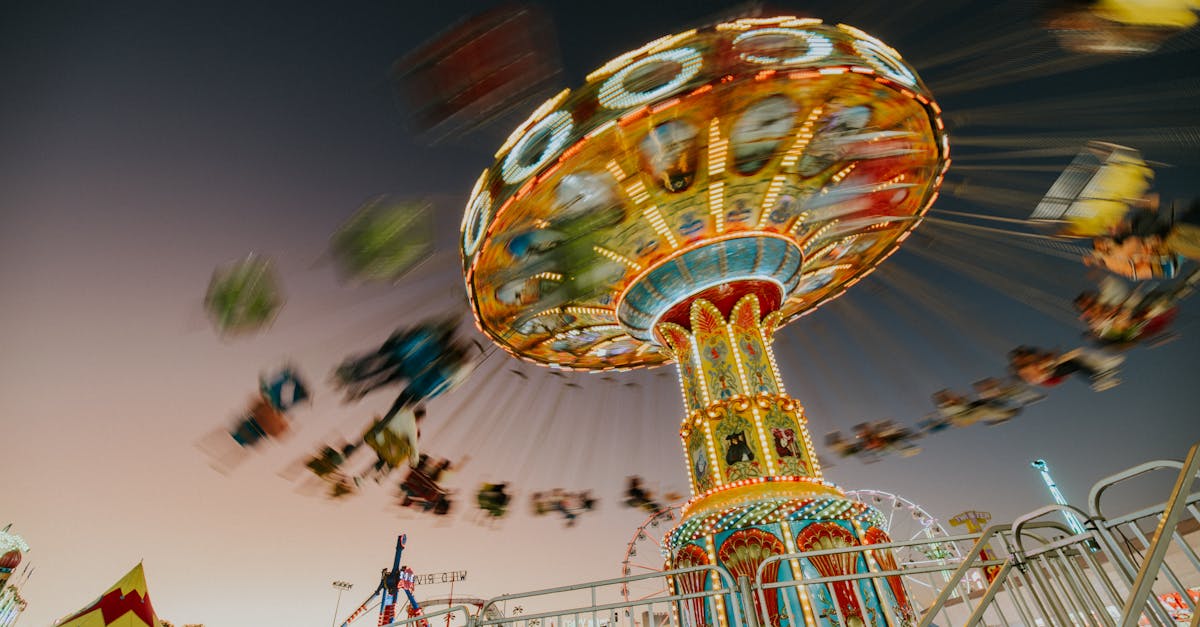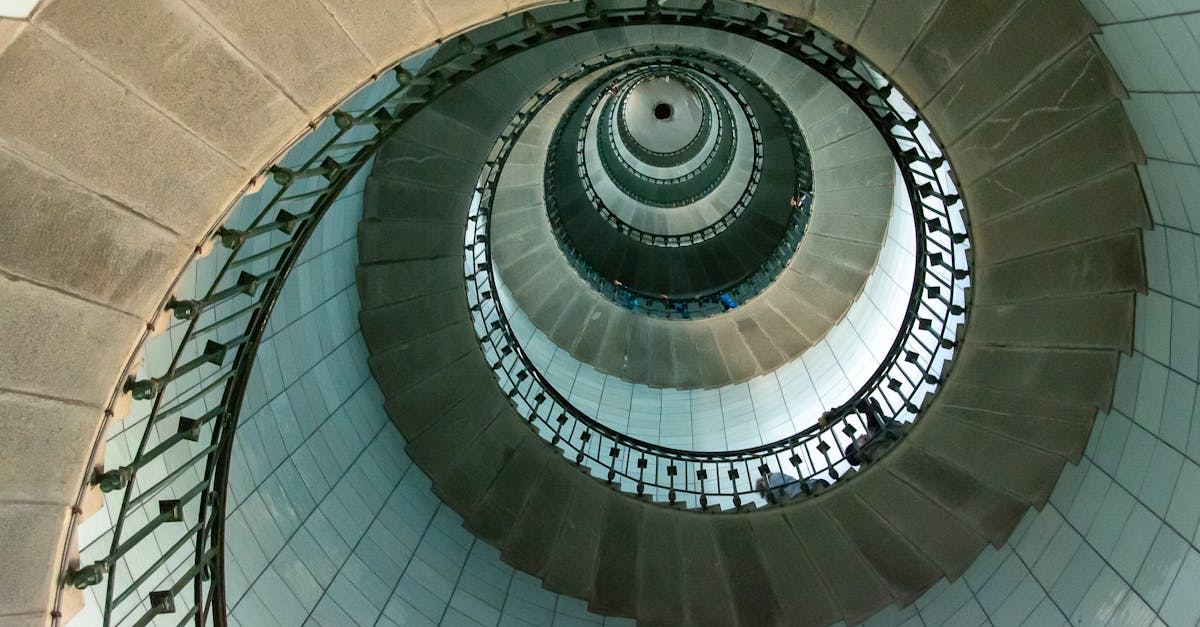Struggling with dizziness after a head injury?
In Short: Dizziness after head injury disrupting your life? You’re not alone. At Pulse Align, we understand the complexities of balance problems stemming from dizziness causes such as BPPV (benign paroxysmal positional vertigo), vestibular neuritis, and labyrinthitis. Our gentle recovery solutions focus on improving your posture and core strength, empowering you to reclaim your balance with confidence. Experience innovative strategies for managing dizziness and anxiety and learn how to enhance your well-being. Reclaim your health and wellness at Pulse Align Clinics. Book your appointment today!
Are you struggling with lower back pain and poor posture?
Navigating post-head injury dizziness can be overwhelming, but Pulse Align offers gentle recovery solutions that can make a significant difference. Addressing dizziness after head injury is crucial, as many individuals experience various dizziness causes that impact their daily lives. Whether contending with conditions like BPPV (benign paroxysmal positional vertigo), vestibular neuritis, or labyrinthitis, understanding how to stop vertigo attacks becomes essential. At Pulse Align, we focus on posture correction and core strengthening, essential techniques that not only alleviate dizziness but also enhance overall well-being. Our innovative approach empowers clients to regain balance and combat symptoms of dizziness and anxiety effectively.

The aftermath of a head injury can leave individuals grappling with sensations that make daily activities challenging. Understanding how to support your body through these experiences is essential. At Pulse Align, we focus on posture improvement and neuromuscular recalibration to help clients regain their stability and sense of well-being. In this article, we will explore how our gentle approach can enhance your recovery journey.
Pulse Align’s Gentle Approach
Many clients face the uncertainties arising from dizziness after a head injury. Our focus at Pulse Align is on restoring the body’s natural balance through gentle stimulation techniques that promote muscle tone symmetry and enhance overall posture. By utilizing a personalized approach, we support your body’s ability to recalibrate naturally, empowering you to regain control over your balance and improve your overall wellness.
Holistic Benefits of Natural Healing
At Pulse Align, our methodology emphasizes a holistic perspective that prioritizes the body’s inherent capacity for recovery. Clients have experienced substantial benefits from our services, noting improvements in their ability to improve posture naturally and manage everyday discomfort. For instance, individuals often report that our techniques help alleviate feelings of tension and restore their ability to engage fully in life once again.
What Our Clients Are Saying
Client experiences reflect the transformative impact of our gentle methods. One client shared, “After visiting Pulse Align, I felt a noticeable shift in my posture and balance. My body began to feel more aligned, and I could move freely without the discomfort I once had.” This sentiment is echoed across multiple testimonials, highlighting how our approach can reduce neck discomfort and foster greater flexibility in daily movements.
Book Your Consultation Today!
If you’re seeking to restore balance and improve your overall well-being, we invite you to explore the services at Pulse Align. Our clinics are conveniently located throughout cities such as Montreal, La Prairie, Terrebonne, Chicoutimi, Charlesbourg, Saint-Jérôme, Châteauguay, Sainte-Marie, Les Escoumins, Granby, and Panama City. We encourage you to book a consultation and see firsthand how our family-friendly, safe, and non-invasive approach can complement your wellness journey. Remember, while we support your recovery process, it’s essential to stay in touch with your healthcare team to ensure comprehensive care.
Navigating Post-Head Injury Dizziness
- Gentle Techniques: Non-invasive methods to minimize discomfort during recovery.
- Posture Correction: Aligning the body to enhance stability and reduce dizziness.
- Core Strengthening: Supporting trunk muscles for better posture stability.
- Personalized Programs: Tailored plans to meet individual recovery needs.
- Holistic Approach: Integrating emotional and physical wellness in recovery.
- Neuromuscular Recalibration: Restoring the connection between brain and body.
- Regular Follow-ups: Continuous assessment to adjust treatment plans for optimal results.

Experiencing dizziness after a head injury can be a disorienting and challenging journey. At Pulse Align, we recognize the profound impacts of balance problems, including vertigo, on daily living. Our gentle, holistic approach focuses on neuromuscular health, posture improvement, and holistic recalibration to help clients regain stability and confidence. This article explores effective recovery strategies utilizing gentle techniques that support your journey toward improved health.
Understanding Dizziness: Causes and Concerns
Dizziness can arise from various dizziness causes, such as BPPV (benign paroxysmal positional vertigo), vestibular neuritis, labyrinthitis, and Meniere’s disease. Each of these conditions can contribute to feelings of imbalance and discomfort. For many, this experience brings accompanying challenges, including dizziness and anxiety and an unsettling feeling of disorientation.
Holistic Techniques for Recovery
At Pulse Align, we emphasize a holistic approach that embraces natural healing methods. Our gentle techniques focus on posture correction and core strengthening to address the root causes of dizziness. Improved posture is essential in reducing episodes of dizziness when standing up suddenly, while strengthening core muscles supports overall stability.
Effective Trunk Exercises for Stability
Implementing regular trunk exercises provides a pathway to enhance balance and address dizziness. Simple yet effective movements can be done at home, such as the BPPV exercises at home designed to activate the vestibular system. These exercises aim to stimulate natural balance while gradually improving strength and coordination.
Gentle Techniques for Dizziness Relief
Integrating natural remedies for dizziness and nausea can further support recovery. Techniques such as deep breathing exercises help reduce anxiety and promote relaxation, which are essential during episodes of dizziness. By focusing on symmetry and the body’s natural ability to recalibrate, clients often experience a renewed sense of stability.
Personalized Recovery Plans
Pulse Align customizes each treatment plan according to individual needs. Our practitioners assess personal challenges and strengths to develop tailored support, ensuring effective engagement with your healing journey. Regular follow-ups allow for adjustments and progress tracking as clients learn how to stop vertigo attacks and improve their quality of life.
Take Action for Your Health
Are you ready to navigate the complexities of dizziness after a head injury? We encourage you to book a consultation at Pulse Align today. Discover how our gentle, recovery-focused approaches can help you reclaim your health and embrace a more balanced life. Visit our clinics located in Montreal, La Prairie, and Panama City to explore personalized exercise plans that support your unique journey.
Navigating Post-Head Injury Dizziness
| Recovery Aspect | Pulse Align Approach |
|---|---|
| Posture Correction | Enhances stability by aligning the body. |
| Core Strengthening | Builds trunk muscle strength for better support. |
| Neuromuscular Recalibration | Restores brain-body connection, improving balance. |
| Gentle Techniques | Non-invasive methods reduce discomfort during recovery. |
| Holistic Approach | Nurtures both physical and emotional wellness. |
| Personalized Programs | Tailored treatments to meet individual recovery needs. |
| Regular Follow-ups | Continuous assessments to ensure ongoing progress. |

Navigating Post-Head Injury Dizziness: Client Experiences with Pulse Align’s Gentle Recovery Solutions
“Living in Mont-Royal, I struggled with severe dizziness after my head injury. My journey to recovery dramatically shifted once I discovered Pulse Align. Their holistic approach resonated with me as I was looking for a solution that would support my body’s natural ability to heal. The gentle techniques they employed not only eased my tension but also helped me feel more grounded. I’m amazed by how quickly I noticed improvements, finding my balance returning naturally. It’s empowering to know I’m not alone in this journey.”
“As a resident of Terrebonne, I sought out Pulse Align after experiencing ongoing dizziness that had disrupted my daily life. Their tailored recovery plan focused on gentle posture correction and core strengthening, which truly made a difference. I began feeling like myself again, and I could engage in activities I once enjoyed without fear. I appreciate how they truly understand the body’s capabilities, helping it recalibrate in a supportive environment.”
“I discovered Pulse Align while looking for relief in Les Escoumins. Following my head injury, I dealt with disorienting dizziness that made simple tasks difficult. The compassionate care I received allowed me to tap into my body’s inherent strength. The approach at Pulse Align is unique—there’s an emphasis on facilitating my natural healing processes rather than just alleviating symptoms. With their guidance, I regained not only my balance but also my confidence.”
“In Châteauguay, I was searching for support after experiencing debilitating dizziness post-head injury. I found that Pulse Align focuses on holistic recovery that complements my existing wellness practices. The ongoing custom care has provided me with tools and techniques to manage my symptoms directly. Many clients like me have reported remarkable improvements, and I feel fortunate to have discovered a team that genuinely cares about my well-being.”
“I cannot express how grateful I am to Pulse Align, especially as a client from Saint-Jérôme. Their gentle techniques fostered my recovery after a challenging head injury. I felt supported throughout the entire process, which allowed me to embrace my wellness journey fully. The staff actively collaborates with my healthcare providers, ensuring a comprehensive approach to my care. The improvements I’ve experienced have been life-altering.”
If you are in the vicinity of Panama City or nearby areas and are struggling with dizziness following a head injury, I highly recommend reaching out to Pulse Align. Their family-friendly and inclusive environment fosters healing for individuals of all ages, making it an excellent resource for wellness. You can explore services and find a clinic near you by visiting Our Clinics. You are not alone in this journey—Pulse Align is here to support you and your family every step of the way.
Experiencing dizziness after a head injury can be a disorienting challenge. Many individuals find that their daily lives and overall well-being are affected by feelings of imbalance. At Pulse Align, we prioritize posture improvement and neuromuscular recalibration, offering a supportive approach designed to help clients regain their stability.
Understanding Pulse Align’s holistic approach is essential in addressing and managing dizziness. We believe in the body’s natural ability to heal and restore balance. Our services utilize gentle stimulation techniques to promote muscle tone symmetry and improve posture. This method focuses on nurturing your body’s inherent capabilities, achieving harmony and overall wellness.
Our clients have shared heartening testimonials about their experiences at Pulse Align. Many express how our approach has helped them improve posture naturally and alleviate feelings of tension in their neck and shoulders. Such transformations are attributed to the supportive techniques that facilitate the body’s natural healing processes, enabling individuals to find their balance without directly targeting symptoms.
Are you ready to explore how Pulse Align can enhance your wellness journey? We invite you to learn more about our services and find a Pulse Align clinic near you. Our locations are available in cities such as Montreal, La Prairie, Terrebonne, Chicoutimi, Charlesbourg, Saint-Jérôme, Châteauguay, Sainte-Marie, Les Escoumins, Granby, and Panama City. Start your consultations with us today and discover how our gentle, family-friendly approach can support your journey to a more balanced life.
Our Mission
At Pulse Align, our mission is to deliver evidence-based, client-centered treatments that address the underlying causes of pain and dysfunction. By integrating advanced techniques and technologies, we strive to empower each person to take control of their health, ensuring a high standard of care, lasting relief, and an improved quality of life.
If you are experiencing dizziness or balance problems following a head injury, we invite you to book a consultation with Pulse Align. Our dedicated team will work with you to create personalized exercise plans and explore various vertigo treatment options. Discover how our holistic approach can empower your recovery journey and enhance your quality of life today.
Learn more about this approach and available services at www.pulsealign.com and find a location near you here: https://pulsealign.com/our-locations/.
Experience Lasting Relief with TAGMED’s Spinal Decompression Therapy
TAGMED’s advanced Spinal Decompression Therapy offers a non-surgical solution specifically designed for those suffering from moderate-to-severe disc issues such as a herniated disc, bulging disc, or conditions like spinal stenosis and foraminal stenosis. By gently reducing pressure on the affected discs and nerves, this specialized technique enhances mobility, alleviates pain, and supports your body’s natural healing process. If you have reached a plateau with other therapies, discover how TAGMED’s evidence-based decompression approach can help you resume an active, comfortable life.
Have you tried conventional treatments and still struggle with persistent back pain due to a severe disc condition?
Mechanism of Action
TAGMED’s neurovertebral decompression applies a controlled, progressive traction force to the spine. This method effectively increases the space between vertebrae, which reduces pressure on intervertebral discs and nerve roots. By promoting better fluid circulation in the targeted area, this process helps lower inflammation and relieve pain, offering a reliable, non-invasive solution for individuals with chronic back issues like disc bulge or degenerative disc disease.
Specific Benefits
This non-invasive approach has shown effective results in alleviating chronic pain and symptoms associated with herniated discs or spinal stenosis. By focusing on reducing pressure on nerve structures and optimizing fluid circulation around the discs, TAGMED’s therapy not only speeds up recovery but also enhances the overall quality of life for patients seeking relief from persistent discomfort. Many have reported significant relief from sciatica and disc pinch symptoms.
Comparison with Other Treatments
When compared to other commonly used treatments—such as pain medications, corticosteroid injections, surgery, or traditional physiotherapy—TAGMED’s neurovertebral decompression therapy presents distinct advantages. This method involves no invasive interventions, minimizes medication-related risks, and offers a potentially faster path to recovery without the side effects often experienced with pharmaceuticals. It is a compelling choice for those seeking safer, evidence-based alternatives to manage their conditions effectively.
Case Studies or Testimonials
Numerous patients have experienced transformative results through TAGMED’s neurovertebral decompression. One patient reported lasting pain relief and a quicker return to daily activities after suffering from chronic back pain due to a bulging disc. Another individual, who battled sciatica for years, expressed gratitude for their newfound mobility and reduced dependence on pain medications. These firsthand accounts exemplify the tangible benefits and practical advantages of this therapeutic approach.
Embrace Balance and Wellness with Pulse Align
If you’re navigating the challenges of dizziness following a head injury, Pulse Align offers gentle recovery solutions to support you on your journey. Our non-invasive approaches focus on posture correction and neuromuscular recalibration, fostering your body’s innate ability to heal and restore balance. By prioritizing these methods, clients often experience improved posture, reduced discomfort, increased mobility, and enhanced overall well-being.
Many clients have expressed their gratitude for the personal journeys they’ve experienced at Pulse Align. They share stories of how our supportive environment has allowed them to reclaim their confidence and embrace life again, free from the burden of imbalance. With a commitment to holistic health, we empower individuals to take control of their well-being through compassionate care and innovative strategies.
Are you ready to take the next step toward a healthier, more balanced you? Discover the Pulse Align difference today. Visit our website to learn more and schedule your consultation at a clinic near you. Together, we can help your body rediscover its natural harmony and find solace in the journey toward wellness.

Do you suffer from a chronic condition that responds little or not at all to conservative treatments?
Pulse Align offers an innovative approach designed to restore the body’s natural balance and posture through gentle, imperceptible pulses. This unique, non-invasive method helps clients navigate the challenges of discomfort or imbalance that can follow head injuries or other everyday strains. By fostering a calm environment for the body to recalibrate, Pulse Align aims to support the reduction of muscle and joint tension, promoting better overall well-being without focusing on direct treatment of any symptoms.
At Pulse Align, our goal is to guide the body toward its inherent ability to find harmony and health. We do not fix or target discomfort directly; instead, we help individuals discover extraordinary improvements in their physical state through gentle stimulation. Clients often experience increased comfort, enhanced posture, and renewed vitality—all through the body’s natural processes. This compassionate approach encourages every person to listen to their body’s needs and embrace change.
Our personalized programs at Pulse Align ensure that each client feels valued and understood. Many have shared heartfelt testimonials about their experiences, expressing noticeable improvements in body tension and overall wellness. Clients who once faced challenges with tension in their neck and back, as well as those seeking to regain their sense of balance, have found solace and encouragement through our services. We take pride in guiding our clients toward their wellness goals in a family-friendly atmosphere.
If you’re interested in exploring the transformative offerings at Pulse Align, we invite you to visit our website to learn more. With locations in cities including La Prairie, Mont-Royal, Terrebonne, Les Escoumins, Charlesbourg, Deux-Montagnes, Sainte-Marie, Chicoutimi, Châteauguay, and Saint-Jérôme, it’s easy to find a clinic that suits your needs. Remember, Pulse Align complements your existing healthcare services, but does not replace them. We encourage you to book a consultation for yourself or your family to experience our unique, gentle approach firsthand. To learn more about our services and book an appointment, visit our website: Pulse Align.
Frequently Asked Questions
Vértigo
Does meditation or yoga help reduce vertigo?
They can reduce stress and improve body awareness, indirectly aiding vertigo management.
¿Qué es la enfermedad de Ménière?
Es una afección del oído interno caracterizada por crisis de vértigo, acúfenos y pérdida auditiva fluctuante.
Les médicaments peuvent-ils soulager les vertiges ?
Certains médicaments (anti-vertigineux, antiémétiques) peuvent aider, mais c’est le traitement de la cause qui est essentiel.
Can a vitamin B12 deficiency cause vertigo?
Severe deficiency can cause neurological symptoms, including dizziness, but it’s less common.
Can vertigo be prevented?
Avoid abrupt position changes, stay hydrated, treat auditory issues, and manage blood pressure to help prevent vertigo.
Can vision problems cause vertigo?
Blurry vision or unequal corrections can cause instability or a sense of imbalance.
¿La fatiga contribuye a los vértigos?
Sí, la fatiga y la falta de sueño pueden aumentar la sensibilidad a los mareos.
¿La rehabilitación vestibular es eficaz?
Sí, reeduca el sistema de equilibrio, ayudando a compensar las disfunciones del oído interno.
Does anxiety worsen vertigo?
Yes, fear of vertigo can create a vicious cycle, increasing anxiety and instability.
Can neck muscle tension cause vertigo?
Extreme tension may affect blood flow and posture, contributing to a feeling of dizziness.
Zoé Rousseau believes that knowledge is the most powerful step toward healing—and she’s here to illuminate the path forward for anyone facing the challenges of vertigo. At Pulse Align, Zoé not only highlights the latest breakthroughs in neuromodulation and non-invasive health technologies but also translates complex research into practical, everyday guidance. Her approach is grounded in empathy and fueled by a genuine drive to help readers find balance, both literally and figuratively. From exploring advanced treatments to sharing firsthand patient stories, Zoé’s heartfelt advocacy ensures that no one has to face the spinning world of vertigo alone.
Medical Disclaimer
The information and advice provided on this site do not replace the advice, diagnosis, or treatment of a healthcare professional. Please note that the author of this article is neither a doctor nor a specialist in a medical specialty as defined by the Collège des médecins du Québec. Manual medicine, functional medicine, and sports medicine as described on this site exclude any medical treatment or diagnosis made by a doctor or medical specialist. Always consult your doctor for any medical questions. For more details, please read our complete Legal Notice.



